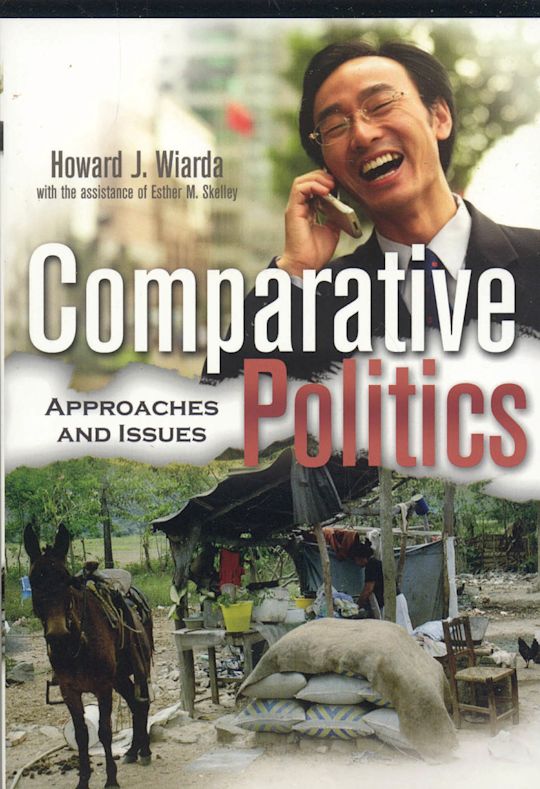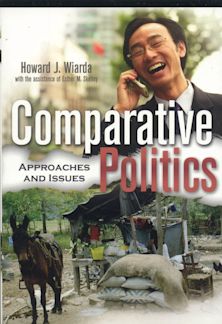- Home
- ACADEMIC
- Politics & International Relations
- Comparative Politics
- Comparative Politics
Comparative Politics
Approaches and Issues
- Textbook
Comparative Politics
Approaches and Issues
- Textbook
This product is usually dispatched within 1 week
- Delivery and returns info
-
Free US delivery on orders $35 or over
You must sign in to add this item to your wishlist. Please sign in or create an account
Description
Beginning with an introduction to the field of comparative politics, this clear and complete text moves on to explore new, innovative directions in the field. Leading scholar Howard J. Wiarda explores its main approaches, including political development, political culture, dependency theory, corporatism, indigenous theories of change, state-society relations, rational choice, and the new institutionalism.
Wiarda addresses many hot issues in the field: Can democracy and human rights be transplanted from one culture to another? Is civil society exportable? What works in the effort to develop the poorer nations and what doesn't? Where are we headed with such frontier research issues as comparative environmental policy, women's rights, and gay rights?
The book concludes with a stimulating discussion of whether the great systems debates of the past (socialism vs. capitalism, democracy vs. authoritarianism) are now over and points to some of the next important study and research frontiers. Students, professors, and general readers will all find Comparative Politics current, provocative, and well written—a truly balanced overview.
Table of Contents
Chapter 1: Introduction
Chapter 2: New Directions in Comparative Politics
Part II: Approaches to the Field
Chapter 3: Political Development
Chapter 4: Political Culture and Comparative Politics
Chapter 5: Corporatism and Comparative Politics
Chapter 6: Indigenous Theories of Change
Chapter 7: Political Development Revisited—and Its Alternatives
Part III: Hot Issues
Chapter 8: Comparative Democracy and Democratization
Chapter 9: Is Civil Society Exportable?
Chapter 10: The Developing Nations: What Works in Development—and What Doesn't
Chapter 11: Frontiers of Research in Comparative Politics
Part IV: Comparative Politics: Toward New Frontiers
Chapter 12: The End of the Great Systems Debate? Implications for Comparative Politics
Conclusion
Product details
| Published | Dec 28 2006 |
|---|---|
| Format | Hardback |
| Edition | 1st |
| Extent | 306 |
| ISBN | 9780742530355 |
| Imprint | Rowman & Littlefield Publishers |
| Dimensions | 9 x 6 inches |
| Publisher | Bloomsbury Publishing |
About the contributors
Reviews
-
Howard Wiarda is without question one of the leading experts in the field of comparative politics. With this book he presents the issues and debates that are at the core of comparative politics. In his usual straightforward and occasionally provocative manner, Wiarda challenges the reader to think through many of the questions about governing in today's world. From the problems with democratization in the less developed world to some of the new directions of study such as environmentalism and gay rights, Wiarda is always at the cutting edge. This is an essential text that students of comparative politics should have on their reading list.
Michael J. Kryzanek, Bridgewater State College
-
Howard Wiarda does a masterful job in presenting the panoply of approaches and hot issues in comparative politics. His focus-and rightly so-is on how we do comparative politics. For students, Comparative Politics: Approaches and Issues provides an array of questions to ask as they read about, and directly experience, countries around the world.
Joel S. Migdal, University of Washington



































